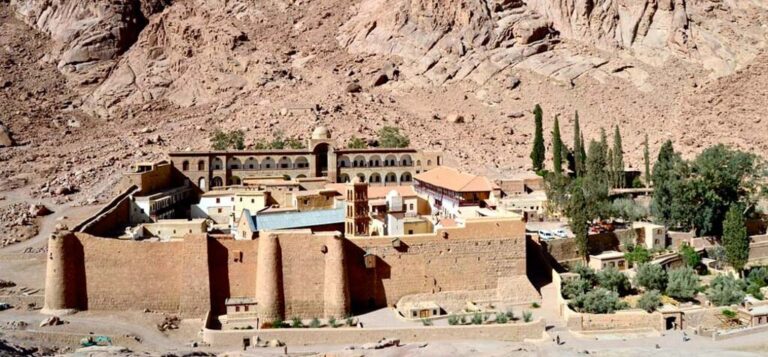A recent diplomatic situation with religious implications has arisen between Athens and Cairo.
At the heart of the issue is the Greek Orthodox Monastery of Sinai, established in 546 AD by Emperor Justinian. It is the oldest continuously operating Christian monastery globally and holds a unique document from Muhammad himself, with his palm stamp, mandating Muslims to respect and protect it.
Since 2002, the Sinai Monastery has been designated as a UNESCO World Heritage Site. Its Greek Orthodox status had never been questioned until now, facing few challenges in its operation.
During the rule of the Muslim Brotherhood, a targeted campaign against the monastery occurred, casting doubt on its existence. While the hostility decreased after the Brotherhood’s fall, the repercussions of actions by Egyptian officials during that time linger.
The Issues
Problems began to surface, unrelated to Egyptian government policy or the shared commitment to cooperation between the two states. These minor issues accumulated, creating potential misunderstandings between the Monastery and Egypt.
The situation escalated with reports on Egyptian websites falsely claiming that the monks were temporary occupants of buildings and land not belonging to them. These reports referenced past legal cases against the Monastery initiated by former Egyptian officials.
The Greek government responded promptly, with the Ministries of Foreign Affairs and Education collaborating. Ministers Giorgos Gerapetritis and Kyriakos Pierrakakis led efforts to address the situation.
A Greek delegation, headed by the Secretary General of Religious Affairs, G. Kalantzis, visited Egypt to meet with South Sinai Governor Dr. Khaled Mubarak, responsible for Sinai Monastery matters. The meeting, emphasizing President Abdel Fattah el-Sisi’s role in safeguarding religious freedom, lasted three hours and was positive.
The Governor presented the Great Plan for the Transformation of Sinai, endorsed by President Sisi, aiming to develop Saint Catherine as a major tourist destination while preserving its history and environment—supported by Greece.
The meeting eased tensions, with joint press releases from both delegations conveying a unified message. They agreed to preserve the Monastery’s heritage and support its religious life.
Athens views the Monastery as vital, representing Hellenism in Egypt. Both sides committed to enhancing cooperation, focusing on areas like religious tourism, culture, and legal recognition of the Monastery as a Greek Orthodox institution.
Sources from Kathimerini indicate that Pierrakakis and Gerapetritis are working on Memoranda of Understanding with Egyptian authorities and the Monastery to strengthen cooperation in various areas.
Source: kathimerini.gr

